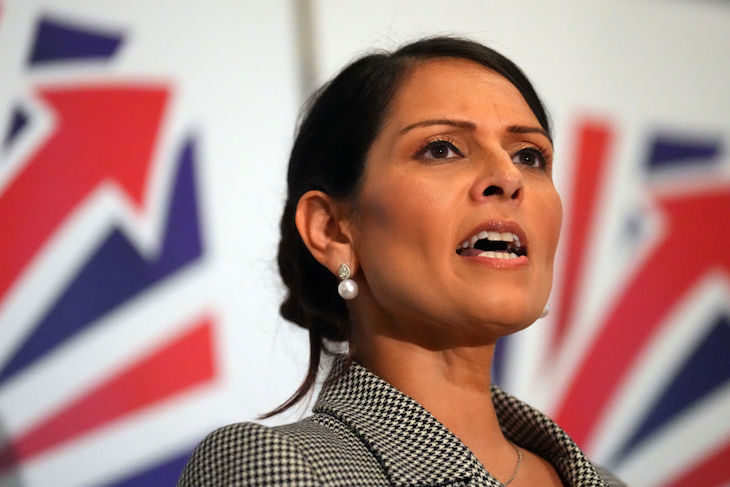Priti Patel has tonight entered the race to be the next Tory leader. The former home secretary sets out her pitch in the Daily Telegraph on why she is best placed to succeed Rishi Sunak. It is framed by the newspaper as being an appeal to the party’s grassroots, with Patel suggesting that she would give party members ‘a much greater voice’ in formulating policies. She writes that the ‘heroic grassroots of the party did ‘nothing wrong’ in this month’s election campaign but were let down by MPs who ‘fell out and fell short.’
Patel becomes the fifth candidate to say she is standing following James Cleverly, Tom Tugendhat, Robert Jenrick and Mel Stride. She is the first female contender and – according to her supporters – the most experienced, having been in politics since the mid-1990s. Patel, 52, worked for the Referendum party and then the Conservatives under William Hague from 1995 onwards. She first contested a seat in 2005 and thereafter was elected for Witham in 2010. This is a contrast to both Cleverly and Tugendhat (2015) and Jenrick (2014) too.
Among her supporters, Patel is regarded as being a clean pair of hands – someone who is untouched by the personality dramas of the past two years. She was home secretary under Boris Johnson from 2019 to 2022 but did not serve under either Liz Truss or Rishi Sunak. She is regarded by colleagues as someone who has made great efforts to reach out to the party’s grassroots – the poor bloody infantry, on the frontline of this month’s catastrophic defeat. Her appearances at events like the Conservative Democratic Organisation last October were interpreted in this light. Over the past two years, members of Sunak’s team regarded her interventions – such as on the Rwanda scheme vote – as being helpful.
So, how far will she go? Patel considered running in 2022 after the defenestration of Boris Johnson. But back then she took too long and was overtaken by Liz Truss, who managed to successfully lock down the right-wing vote. This time, it’s far less obvious publicly who is backing whom. Less than ten per cent of MPs have declared in favour of their preferred candidate. With many colleagues currently on the fence, Patel’s supporters will hope that a long contest favours her chances. ‘Unity’, is her watchword: but with James Cleverly, her (eventual) successor saying similar, will that be enough to stand out from the pack?







Comments